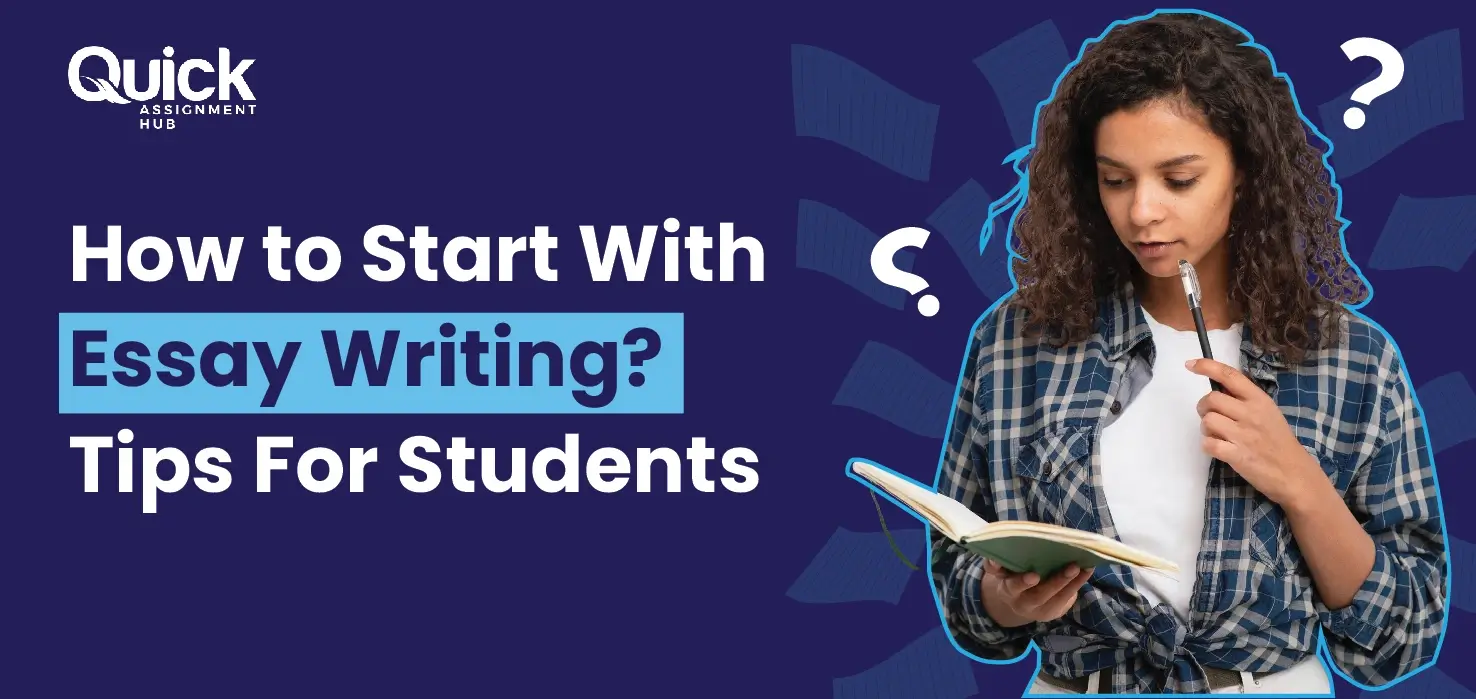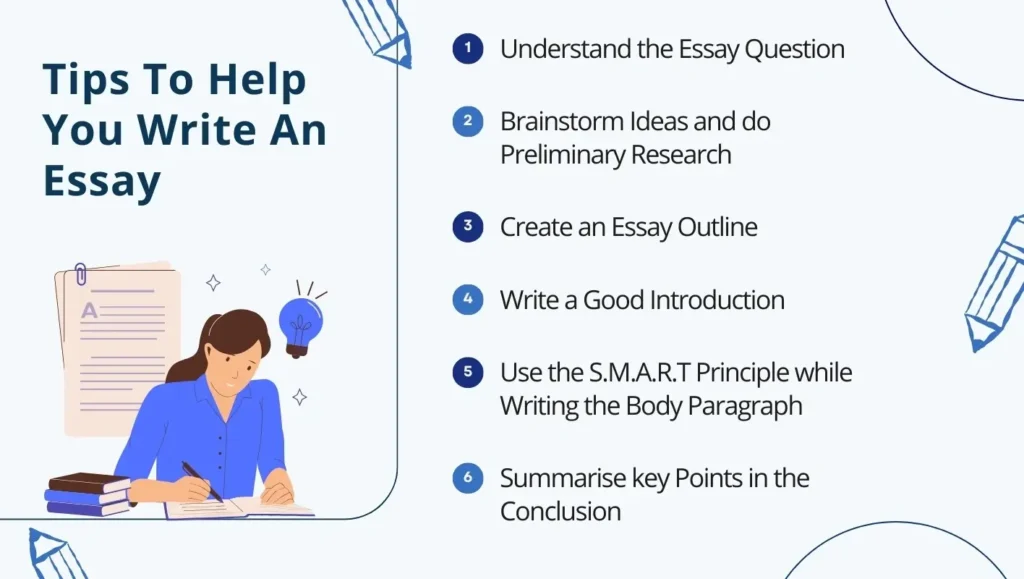
Writing an essay may often be daunting due to a lack of direction. But do not despair. Essay writing is a skill which can be trained and developed to obtain the necessary results. Whether you are crafting an essay for a school assignment, college application, or personal project, understanding the basics is the foundation of success.
A good essay conveys the concepts and information needed for a particular topic and impresses the audience. In this guide, we will explore how to use essay writing tips in planning, organising, and improving the quality of your essays. Even if you are on the other side of the argument, this blog will share tips to help you write consistently, confidently, and persuasively. Let's get started!
Below are a few helpful tips to help you write an essay effectively.

The first thing that one must do before writing any essay is to ensure they understand the question. If you have a question about making an essay plan, this step will help you. Off-topic writing or incomplete responses are common among many students because they fall in love with the look-finish process instead of assessing the question adequately. Break down the prompt into critical elements:
What is being asked?
What are the keywords?
What is the essay's purpose (to inform, persuade, analyse, etc.)?
After defining what the question is asking, create ideas around the topic at hand. Jot down any idea, fact, or example that comes into your mind. You can put your ideas in order by using such methods as mind mapping or, preferably, making the list.
However, doing preliminary research after getting an idea through brainstorming is prudent. Collect data from authoritative sources like scholarly publications, periodicals, books, or other credible websites. Always jot down the notes and the references, which are so helpful in the subsequent stages of writing the essay.
An essay outline serves as a framework for writing. That way, it aids you in presenting ideas in order so that transitions from one idea to the next are smooth. If one does not use an outline, one may wander on and on, making the whole work a mess. Here's a basic outline structure for most essays:
Your First Order
Get 20% OFF!
Give an overview of the topic and share some relevant background information before presenting your main idea to the reader.
The topic for each new paragraph should be developed on a single idea that relates to your thesis statement. Using the principles of S.M.A.R.T. writing will help construct the writing to have a clear topic sentence, evidence, examples, and analysis at the beginning of each paragraph.
The function of a conclusion is to summarise the principal ideas and repeat the thesis statement concerning the body part of the work. It is also essential to have a closing statement or a call to action at the end.
Start with a Hook: Start the article with an interesting fact, a quote, or a question that will provoke the reader.
Provide Context: Before launching the main argument, your thesis statement. This is important to assist your reader in gaining perceptions of the relevance of your argument.
End with a clear statement: The most essential thing in your thesis is to state what your position is and what arguments you will be presenting in your paper.
Every human body paragraph needs to relate to your main argument and present your arguments and evidence. Follow these tips to write effective body paragraphs:
Start with a Strong Topic Sentence: In great detail, this sentence should include what the whole paragraph is about and relate it to your thesis.
Use Evidence: Ensure you back your opinions with evidence, figures, quotes, statistics, or instances. Make sure your evidence is accurate, and give source references where necessary.
Explain Your Evidence: Besides that, do not state proofs simply. Always show how you arrived at the conclusion and why this evidence matters.
A reasonable conclusion sums up the essay and brings a showdown to the reader that leaves an impression. Here's how to write an effective conclusion:
Summarise Main Points: Summarise the thesis statements you have developed throughout the essay.
Restate Your Thesis: Sum up your key points and state the purpose of your essay once again.
Offer Final Thoughts: Make sure you offer the reader something to think about after they've done reading. This could be a radical provocation to do something, a rhetorical question, or an indication of the consequences that follow from the produced argument.
Skills for writing an excellent essay may seem all but easy; however, achieving one's aim can be acquiring personable, orderly work. One important thing to note is always to build your thoughts from the prompt. It also makes a frame to argue and ensures that evidence backs up all presented arguments.
Pay attention to the tips to write a good essay, as these frequently take your essay from good to great. Practice makes perfect, and gradually, you will notice an improvement in your writing ability.
If you ever need assistance or are having difficulty completing some of your assignments, then Quick Assignment Hub is readily available to help writing an essay. Students need professional support, and we provide the required assistance to succeed in learning. Contact Quick Assignment Hub now and step up your essay writing skills!
© Copyright Quick Assignment Hub All rights reserved.